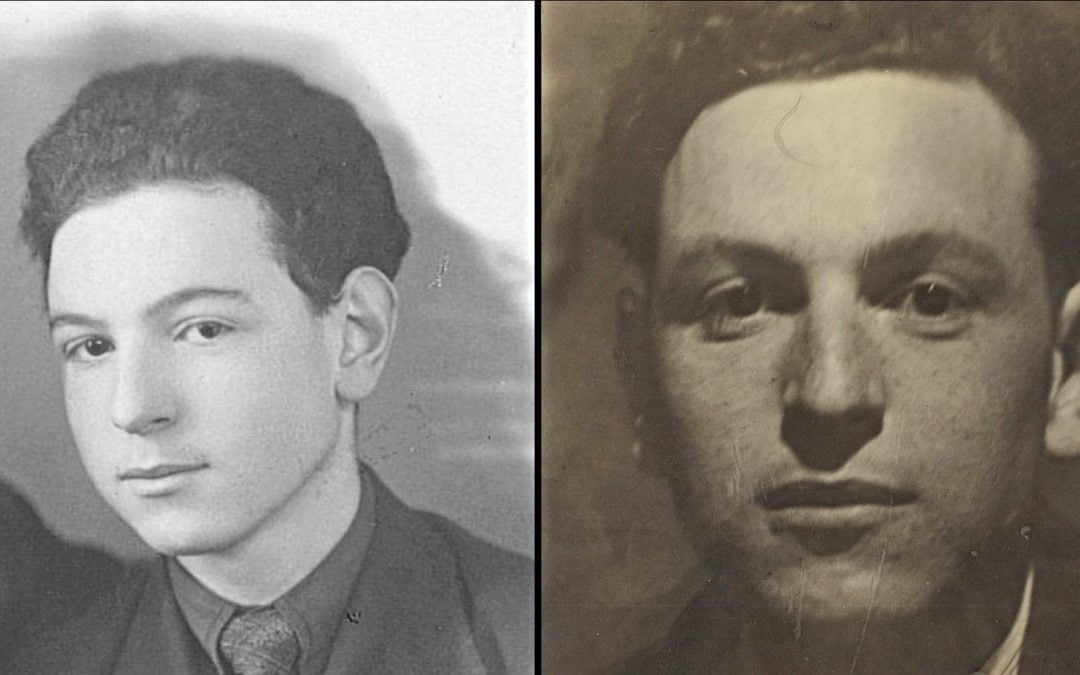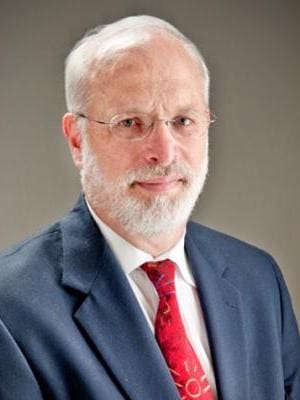This is an incredible immigration story.
I am told that many Russian Jews have stories like this one. For those of us who were activists in the movement to free Soviet Jews, this shows us that our efforts were not in vain.
Here is the story as it was told to me in preparation for the funeral of Yevgeniy Yudin.
Born on Sept. 22, 1924, in Leningrad, now St. Petersburg, Russia, to a poor Jewish family, he was 16 when his mother was arrested because her neighbors had written a false report about her.
She was put into one of Stalin’s camps, which he used for people who were considered traitors against the Soviet Union.
Yevgeniy’s younger sister was taken by her grandparents to the city of Nizhny Novgorod. The family fell apart, and Yevgeniy had only his father to stay with.
Since his childhood, Yevgeniy was smart and bright. In June 1941, he graduated from high school, where he was awarded a “gold” medal.
This means he got all A’s in all the subjects. The “gold” medal gave him the right to be enrolled in the university without any exams.
On June 22, 1941, Yevgeniy was filling out an application to be enrolled in the Aviation University, when he heard an announcement on the radio that Hitler violently attacked the Soviet Union. That summer, he worked as a technical controller at the factory.
On Sept. 8, 1941, the siege of Leningrad began and would last 872 days. It was one of the most destructive and deadly sieges in history with 642,000 civilians perishing during the siege.
Yevgeniy stayed in the besieged city until March 1942, undergoing many hardships during this time. There was almost no food at all. He remembered that the Nazis even burned a food warehouse.
Each day, a citizen of Leningrad received approximately half a pound of rye bread, and sometimes, a handful of grain. The citizens had coupons for bread each day; the loss of coupons was a tragedy.
In December 1941, the bread allotment was reduced to a quarter pound for one person per day. The bread was not real. It was made from glue, cellulose and a little bit of grain.
That winter was uniquely cold – minus 40 F. All the streets were covered by mounds of slippery snow and ice. All the buses would get stuck in the snow.
All power was lost. There was no heat, no gas, no tap water. People started dying, perhaps as many as 10,000 per day.
Yevgeniy would get up around 4 a.m. and put on three winter coats, just to stand in line to get a portion of bread for himself and his father. His father was so weak that he stayed in bed, covered with lots of blankets, all night and day long.
It was freezing inside, so Yevgeniy got a small furnace and put it in the middle of the room. He would use the furnace to boil snow for water.
Yevgeniy suffered greatly from hunger. He could barely walk because he was so weak. Later, Yevgeniy received a medal as a “defender of Leningrad.”
In March 1942, Yevgeniy was evacuated with the students of the university who traveled by truck across the frozen Lake Ladoga.
This was quite a treacherous undertaking because the Nazis frequently fired upon those who were crossing this way.
Yevgeniy remembered that some trucks did not make it across the lake because in places the ice was not thick enough to support their weight.
In such cases, the trucks sank to the bottom of the lake, carrying their cargo and those seeking refuge to a watery grave.
He did not recall much about this because at that time he was half-unconscious. His friends had picked him up, put him in the truck and took him out the same way.
When they arrived at their destination on the other shore of the lake, Yevgeniy was given a bowl of oatmeal. He remembered that each spoonful returned him to life.
The students were then taken by freight train to the town named Kislovodsk in the North Caucasus region of Russia between the Black and Caspian seas.
In August 1942, German troops came very close to Kislovodsk, so the students had to leave quickly. Because Nazis blocked the railways, the students had to go by foot.
It took them about a week to arrive in the town of Nalchik in the foothills of the Caucasus Mountains. When they arrived, they went directly to the railway station.
There was one last freight train, full of refugees destined for the town of Makhachkala, the capital city of the Republic of Dagestan, Russia, located on the western shore of the Caspian Sea.
Yevgeniy crawled under the train with the intention of getting on board at the last minute. While he was crawling, the train started moving.
Yevgeniy jumped up and ran as fast as he could behind the train. His friends stretched their arms toward him and pulled him up aboard the train.
As a Jew, Yevgeniy had horrible thoughts while running. If he stayed in Kislovodsk, the Nazis would have killed him.
Finally, he arrived in the city of Kuybyshev (Moldova), where he continued to study in the Aviation University.
On his birthday, Sept. 22, 1944, Yevgeniy returned to Leningrad, where he enrolled in Leningrad Polytechnic University.
In 1948, he graduated and earned a master’s degree in physics as an engineer researcher. He was hired by the Krylov Scientific Research Institute and would work there for 50 years.
He went on to earn his doctorate and become a professor at the institute, writing many scientific articles that are recognized throughout the world.
In 1996, he was honored by Russian president Boris Yeltsin and awarded a medal of honor for his scientific work.
In 1951, Yevgeniy married Nina Yudin, who passed away three years ago. They had a happy marriage for 64 years.
Yevgeniy was a unique father and grandfather. He dearly loved his family; he was very caring, nurturing, loving, gentle, attentive and always ready to help. He taught his family many lessons of life. He worried, not only about his own family, but as he said himself, also about other people he knew.
In 1997 and 1998, things in Russia seemed to deteriorate quickly. Violence had increased, and Yevgeniy and Nina were afraid that their grandson, Oleg, could be drafted into the Russian army.
In 1998, Yevgeniy together with his family emigrated from Russia and settled in the United States.
In this time of such discord about immigration, perhaps it is incumbent upon us to remember stories such as this one.
Certainly one of the most meaningful days in Yevgeniy’s life was when he celebrated his 80th birthday on Sept. 22, 2004. On that day, Yevgeniy Yudin became an American citizen.


